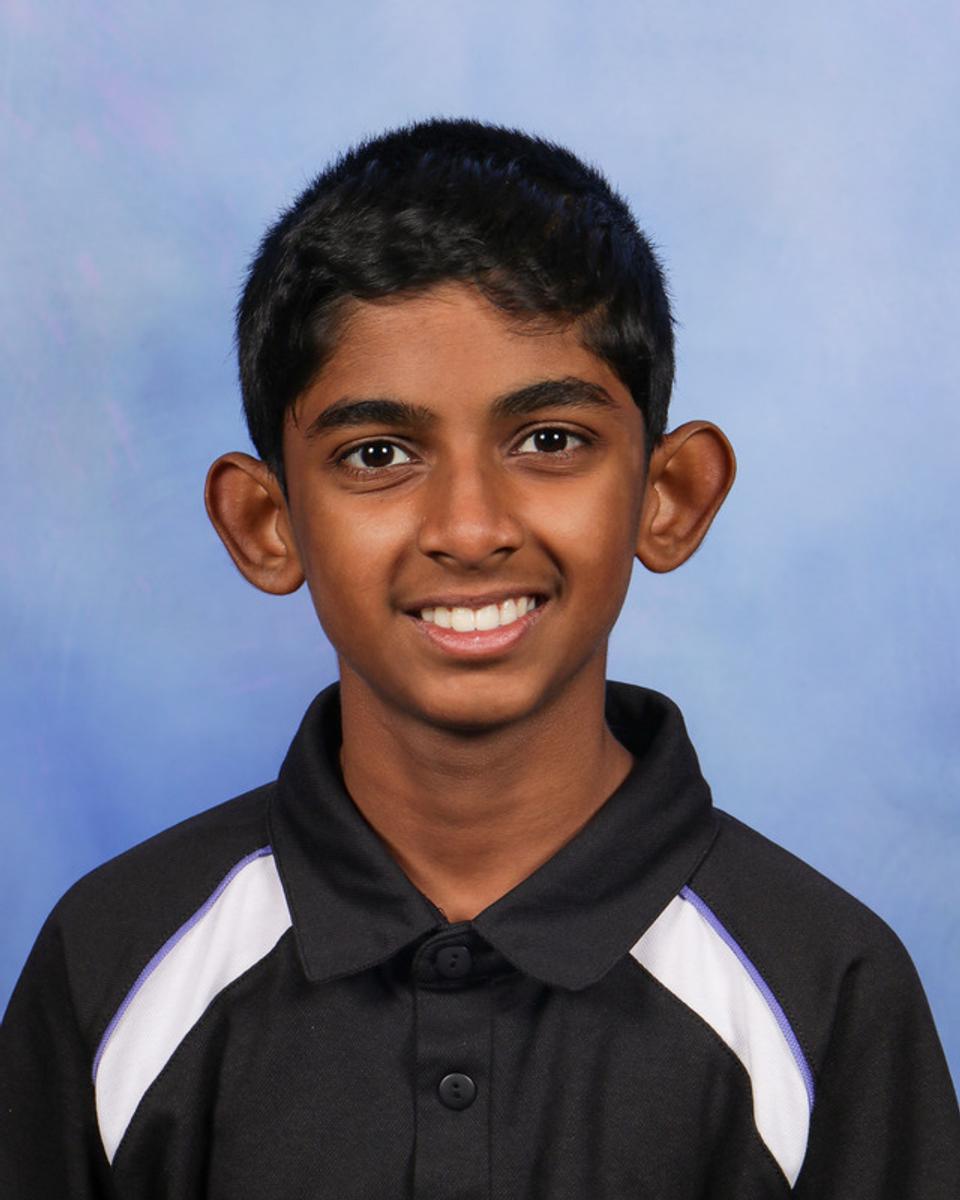Victorian High Abilities Program

Congratulations to Nishad Kethan who participated in the Victorian High Abilities Program in Term 2 this year. His work was deemed to be exceptional and has been chosen to be published on the Victorian Virtual Schools website.
Darkness and Danger
A boy stands high up on a tower, staring at the vast, glacial desert, his green eyes luminous against his pale, semi-opaque skin. His eyes shine with the reflection of the vast galaxy and stars above; this planet’s last hope, he thinks to himself. He sat down, a book in hand; he turned the page to 61. The title read "The Dying Sun: A Million Years before the Sun Faded Entirely." The pages show a vast star so big that every day for 12 hours there was light, a world of such riches that the poorest of the poor had light. Where, at night, people left the lights on! Even when they didn’t need it! A world where sunlight was so abundant it was used for electricity; a place where most of the food came from plants… He had never even seen a plant before, let alone eaten one; instead, he was forced to eat the boring old blood cap mushrooms, like who even likes them? They’re small, juicy, and full of the bright sticky blood of their undissolved prey. Even their prey tasted better than them; the white, juicy cave crawlers were delicious, with their rich, juicy skin, crispy legs, slimy eyes, and soft meat. That reminded him of his favourite dish - fried glow kelp - his mouth was dripping just thinking about it, how crispy it was, how colourful it was, how it left his mouth glowing with the aftertaste… the only problem was that it only grew at the bottom of the Aquanox Lakes, which were inhabited by salamanders. He shivered just thinking about them; they were the apex predators near large bodies of freshwater and were things of nightmares. Each of the different lakes had its own species of salamander; he remembered only one of them by its full name, though, the Salamandra Somnum Exterreri. They had long, serpentine bodies that were usually as white as a ghost; they had no eyes whatsoever and had gills near the base of their neck. They were enormous, growing to be up to 10m long, and their mouths were filled with rows of razor-sharp teeth. They could seemingly vanish silently into the black, icy depths and reappear right behind you, and worst of all was the fact that they seemed to be able to sense prey no matter where it was in the water.
He stopped his train of thought and instead imagined this light-filled world in his head - it sounded like his idea of heaven. Endless light for 12 hours each day was something not even the richest of the rich could afford for a house, let alone a planet. Everything must have been perfect before the sun died out, and then the reaping began; soon, there wasn’t enough power for the population, so they turned to the stars. Their new machine pulled light down in high-concentration beams, which were harvested to power the ever-growing population of the planet. Over time, technology continued to advance, though with an unforeseen consequence of draining the planet of all its beauty and radiance at an exponential rate… Light had been gone for a million years, leaving us to live with the consequences.
He flipped the pages to 365 and read the passage he knew by heart: The evolution of life: Our ancestors long ago. Homo sapiens lived in a world of light; amazingly, their skin colour seemed to change based on the amount of light in the area they lived in. They had a wide, varied diet consisting mostly of the now extinct and critically endangered plants. But as the sun faded, evolution favoured those with paler skin and less pigmentation, leading to the rise of Homo Obscurus. Pale white skin and partial night vision, along with more ovaloid pupils, defined this genus. Then the sun faded entirely, leaving perpetual darkness on Earth, and leading to the rise of us, Homo nocturnes. Our adaptations include complete night vision, slit-shaped eyes, semi-opaque skin, and an overall smaller stature.
He turned the page again and looked at the diagrams of various creatures that now inhabit this land. He started at a shrieking noise up above, and his book dropped to the ground and landed open on a page. The title read Phantom Bats. He froze as another shriek echoed behind him, closer; he turned around slowly. Directly above him on the roof of the cave was a phantom bat. It had large translucent wings, patches of white skin covering its eyes, and a blood-red tongue visible through rows of razor-sharp teeth. It stared at him intently as panic spread through his veins. He knew he had to choose now- to run or stay still. If he ran, he ran the risk that it hadn’t registered him as prey yet and then would come after him… But if he stayed still, it would eventually figure out that he was prey and devour him whole.

